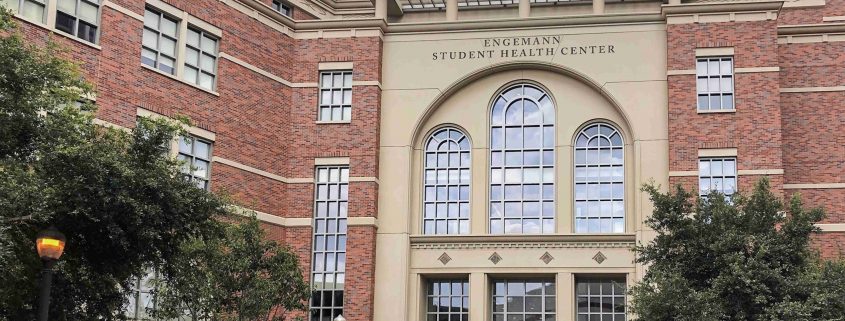Free HIV testing is not enough

Imagine this: a college campus where sexual health is normalized, where campus organizations and leadership hand out condoms like candy, where students speak on these historically taboo subjects, where students feel emotionally, mentally and physically secure. A sexual health utopia, if you will, where students don’t need to pay an absurd amount of money to see if they have contracted a sexually transmitted infection.
USC ostensibly projects that it is on the right track. Just this September, USG introduced an initiative through a USC Student Health program for free HIV testing in an effort to destigmatize sexual health and normalize STI testing on campus. While these efforts are admirable and a step in the right direction, they fall short of true destigmatization.
The USG initiative reflects yet another ploy that, despite its sincere efforts and potential impact, stands as merely a promotion for the progressive standard USC strives to portray. In order for USC to complement its endorsement of a safe sex environment, USC Student Health should additionally fund and implement more comprehensive, free-of-cost STI-testing programs.
On a campus where students rely on the Engemann Student Health Center for medical treatment, it seems like common sense that STI testing be readily available there. In fact, it is. But the advertised free annual STI screening only applies to students who have the student health insurance plan.
While Engemann still conducts STI screenings for students with private health insurance plans, these students are expected to cover the costs of the tests themselves. Certain health insurance companies, such as TRICARE Prime, require that clients solely use their primary care provider to book appointments in order to be reimbursed. This becomes problematic when the primary provider practices out of state, leaving some students under private health insurance companies with limited options when it comes to finding extensive and affordable STI screenings.
Ultimately, however, this conflict should not waive the University’s responsibility to provide access to comprehensive screening programs. Although there are several off-campus locations that offer free comprehensive STI testing, including the LGBT Center in Hollywood, transportation is still an impeding factor.
By relying on another Los Angeles clinic to carry out this responsibility, USC contradicts itself as a campus that preaches safe sexual health practices while ignoring the risks that still accompany them. Not to mention, these clinics, along with free HIV testing, act as scapegoats in this “dollhouse” of a campus that externally prioritizes sexual well-being but does not internally commit to a solution. On the outside, these resources do present as inclusive to all students regardless of sexuality. But upon second glance, stigmatization still exists, and it won’t go away any time soon unless USC approaches this issue from a different angle.
If USC really wants to destigmatize sexual health and reflect both inclusivity and advancement, it should look to a different model. Take the University of New Mexico, for example. As part of its STI Testing Tuesdays initiative, UNM offers free testing for gonorrhea and chlamydia twice a month on select Tuesdays along with free HIV testing twice a month on select Thursdays.
This model not only covers more STI tests but transforms STI testing into a publicized campus-wide event that promotes these screenings and fosters sexual health. By offering easily accessible monthly events, UNM acknowledges the risks that naturally accompany any sexual contact and takes responsibility for its students. USC could learn a thing or two from this approach.
USC should abandon its efforts to pose as progressive with non-comprehensive STI screening programs and commitment to only half of the responsibility for students’ sexual well-being. If the University truly prioritizes sexual health on campus, a sexual health paradise may not be so far-fetched after all.

